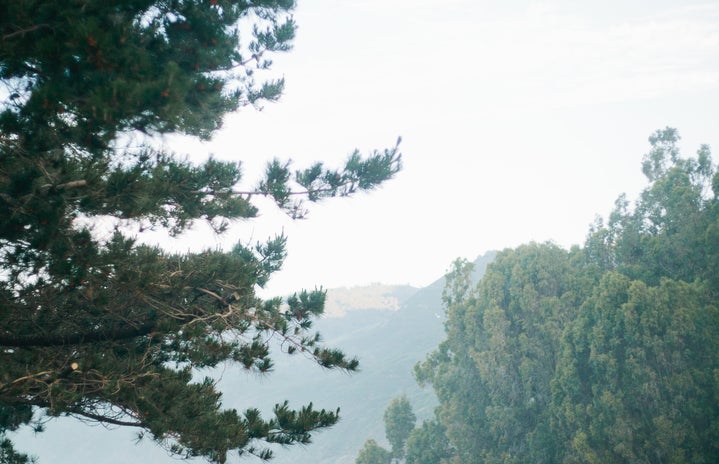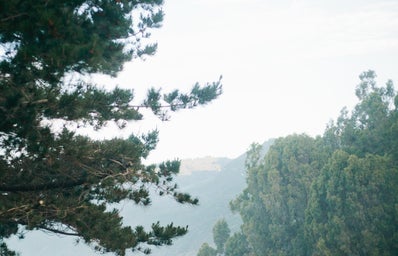“Owww!”
A cry of pain pierces through the air of a crowded bus filled with the peak hour work-day crowd’s bustle. Someone had stepped on another’s foot, and there was no telling who the culprit could have been. The population was heterogeneous– working people falling asleep on the seats on their way home, tired students clinging to poles heaving bags that weighed more than them, and odd persons whose occupations and destinations could not be guessed on sight. It was impossible to stand or sit without making contact of any kind. The bus was an open ground for feet stomping, stampeding, and non-consensual groping.
To an outsider, the bus was a mass of its own with no distinction between the people that constituted it. The year was 2019, buses swayed with the density of the people it transported at 6 pm as was considered ‘normal’, and everyone who set foot inside was aware of the no-personal-space condition. If you chose to be stingy about your shared space or made a fuss about your foot getting stomped on, needless to say, you were in for some dirty looks and mean insults aimed your way. The fact that so many people physically touched each other on the bus, either intentionally, accidentally, or inevitably, was not surprising at all.
We often take for granted the pleasure of touch, be it just a gentle brush against velvet, comforting hugs from best friends, intertwining hands with those you love, or just a simple handshake. It resonates warmth and the essence of social existence – human contact. In the pre-COVID world, random meet-cutes in outside spaces would lead to the budding of exciting new friendships and relationships, often what fueled the little fire in us, with respect to our thought process, our imagination, and how we perceive society. On the other hand, the internet tends to be a cold place, that looms with lifeless interaction disguised by faux affability. We tend to have control over what we can see and how we choose to consume content and hence are less likely to give social interaction its due importance.
Of course, it is important to acknowledge how crowded spaces also bring with them ignorance of personal space and unsolicited touching. The post-COVID world would hopefully go on to have lesser violations of personal spaces as a by-product of the severe decline in crowded areas.
Buses can also be considered a prime example of socializing in a pre-COVID world. Sitting next to each other helped ignite conversations, offering to hold bags sometimes led you to meet someone interesting, and one could always find a pal who would save a seat and stop a departing bus for them on their regular route. A simple smile exchanged across the street could be the ray of sunshine at the end of someone’s bad day. Now smiles underneath a mask have been reduced to nothing but the squint of an eye – a gloomy reminder of the dystopia we currently live in, hoping that our message of hope reaches the one for which it was meant.
A scene on a public bus pre-pandemic would seem to be – thoughts swirling in our heads regarding the little nuances of travel, the occasional unwanted skirmishes, music blaring through one’s earphones while we look past the passing urban landscape, people merely inches away from each other, strangers, friends, calm experiences, frightening and uncomfortable ones too – all of which contributed to components of our identity. We were gaining lived experiences. The thoughts we have now on public transport are centered around fear. Fear of survival, fear of opportunity, fear of getting through, fear of catching the virus. The aspect of gaining lived experiences has been lost, with thousands of precautions, a million worries in our heads; everyone distanced, lest they touch. The new normal is this scenario of not having a spectrum of choices and opportunities to develop one’s identity, but rather this monotone existence, oblivious to the world around.
Inevitably, buses have also always been breeding grounds for creeps and criminals. It was important to stay cautious at all times and read the faces of the people next to you on the bus. In a pre-COVID world, the expressions of a person could help you decide the kind of person you were dealing with and sometimes even help you escape the hands of criminals. The concept of behavioral and facial judgments found its obsolescence in 2019; replaced by robotic movements and masks covering up identities. Security and identification problems might begin to arise when everyone now wears a mask instead of just the ones whose intent is to obscure their identity.
The magnitude and plethora of changes that have crept into our lives since the onset of the pandemic has been overwhelming. It is important to acknowledge the effects of this crisis on our well-being as much as it is important to brace for impact regarding the future of our world. The “normal” that we are now lusting to return to has, in fact, ceased to exist. It is about time we prepare ourselves to mould into oxymoronic “new normals” that will start to define our lives soon.
The year is 2021, and buses have begun to operate again. Personal space has never been respected better before. Not a single bus sways with an overload anymore – buses are not allowed to admit more than half its original capacity. Contact of any kind is feared – no smiles, no help offerings, and no talking to strangers anymore. The feel of any sort of touch isn’t a popular concept anymore. Social life is defined by glass screens. The future of such a working world seems dystopian now, but the acceptance of it as the new normal needs to start soon.




